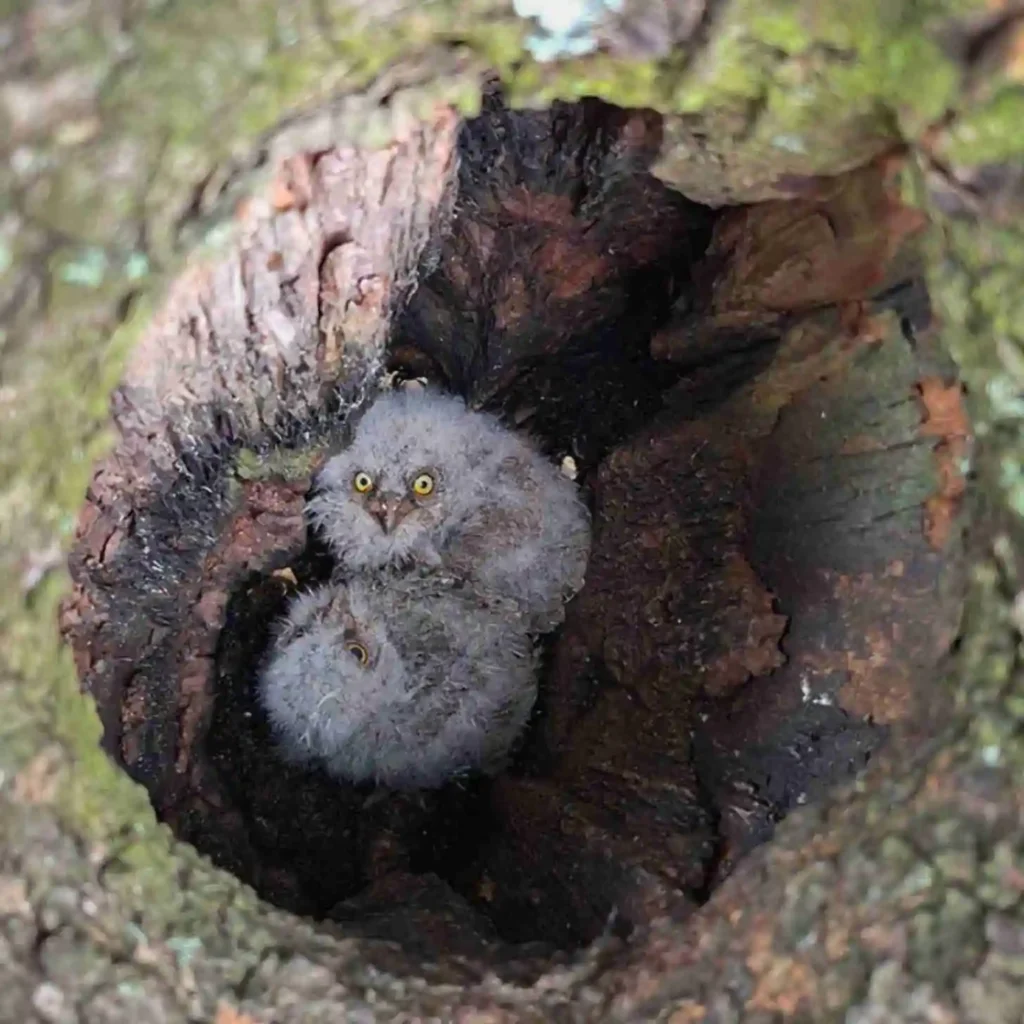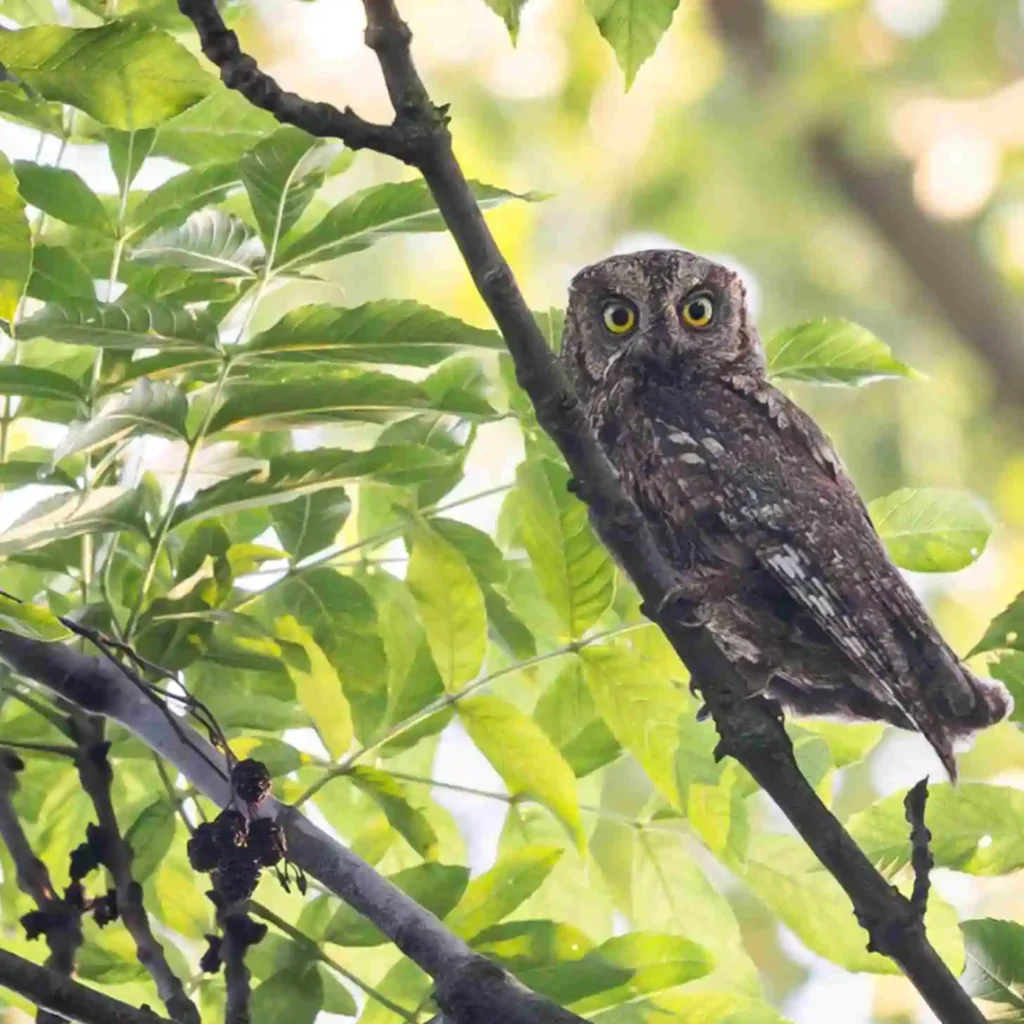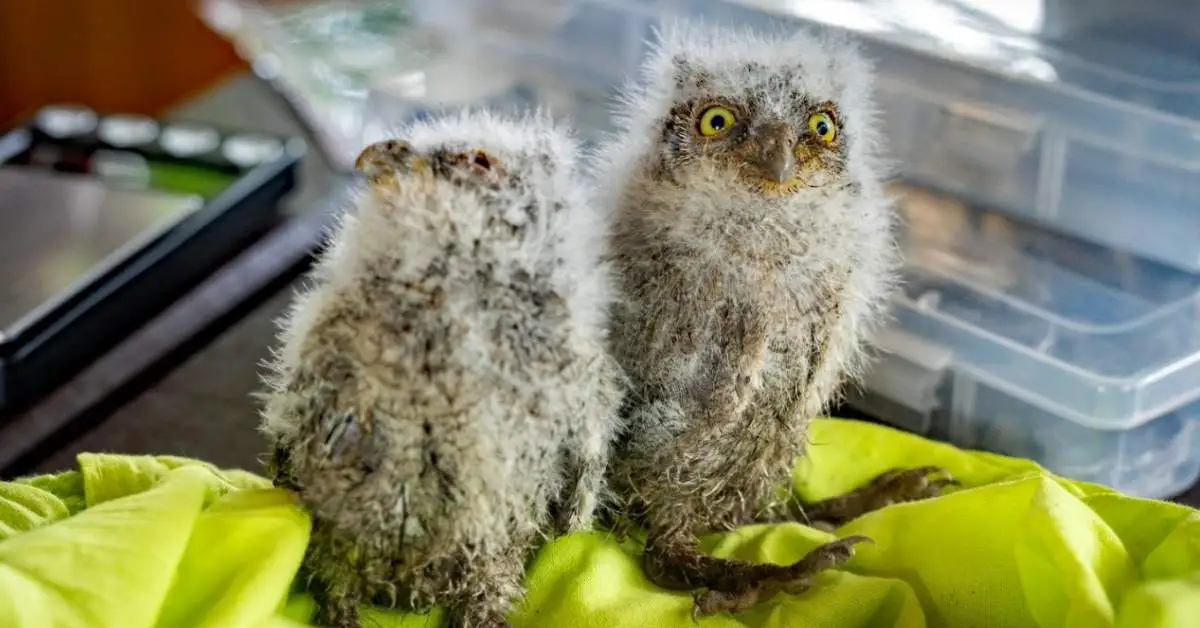In May, nature photographer and ornithologist Tomasz Sczansny was walking through Poland’s Upper Silesia region when he heard something unexpected: the sharp territorial call of a male Eurasian scops owl.
The sound startled him. Although the small owls are widespread across Europe, they are incredibly rare in Poland — with no confirmed breeding records in the country for more than a century.
Sczansny returned the next night, joined by fellow ornithologist Sławek Rubacha. Again, the male owl called. Then, weeks later, they heard a different voice: a female.
“On June 26, we managed to register two birds for the first time: male and female,” the pair wrote on Facebook for Poland’s Owl Conservation Association. “Their behavior was a clear indication that we might be dealing with a nesting pair.”

Using a thermal-vision camera on July 19, they confirmed their suspicions — breeding activity was underway. “We were so happy,” they wrote, adding that the moment was accidentally recorded on a live microphone. “Unfortunately, the material is not suitable for publication,” they joked.
At dawn, the researchers peered into the nest with a ladder and camera, finding the female with three tiny chicks, only a few days old. Two weeks later, when they returned to ring the chicks for future identification, only two remained.

Even so, the discovery is groundbreaking: the first confirmed breeding of Eurasian scops owls in Poland in over 100 years.
Globally, owl populations are under threat from habitat loss and deforestation, but the Eurasian scops owl is not currently endangered. In Poland, however, the species has long been considered scarce. A 2006 report estimated its presence as “very thin,” but the new evidence offers hope of a slow comeback.
“During all the inspections, we collected a lot of information about food, feeding frequency, adult bird behavior, etc.,” Rubacha and Sczansny wrote. “We are sure these observations will help others with the future of this species.”
For Sczansny, the discovery is another reward from a life devoted to nature. “The greatest joy in my life comes from observing the incredible spectacle that nature puts on for us,” he told Vectra Publishing. “Photography allows me, even if only to a small extent, to capture the beauty that Mother Nature shows me.”
